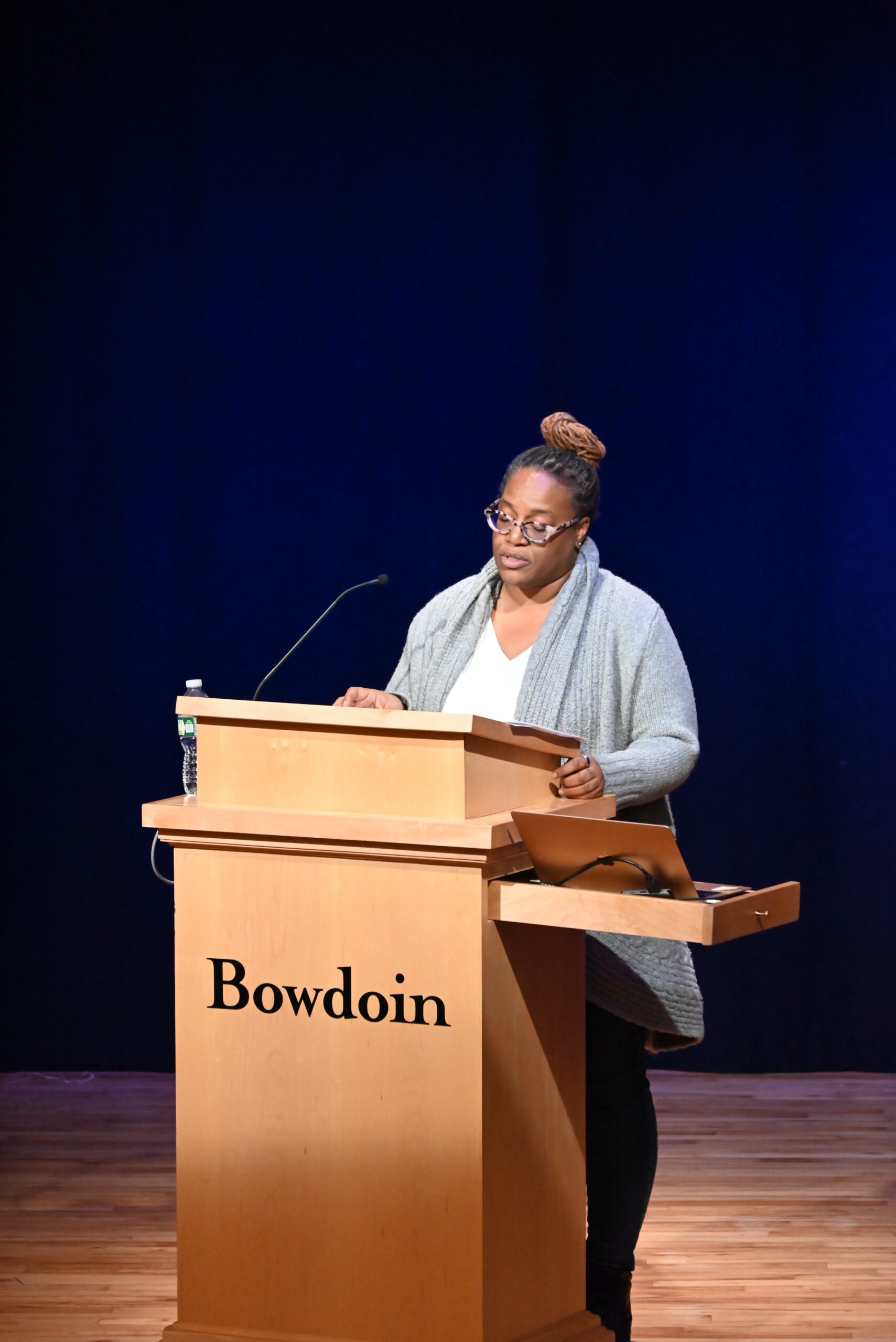Dr. Imani Kai Johnson’s talk on battling Africanist erasure in global hip hop
February 24, 2023
 Cloe Tarlton
Cloe TarltonThis year, hip hop celebrates its 50th anniversary. From basement block parties in the South Bronx to the Olympics at Paris 2024, hip hop as a culture has come incredibly far. This poses the exciting question of what more innovation could come in the next decade or two? To Assistant Professor of Critical Dance Studies Dr. Imani Kai Johnson at the University of California, Riverside, this anniversary also reminds her of the looming threat of continued erasure of Black and Africanist history in hip hop.
On Wednesday afternoon, faculty and students came together in Kresge Auditorium to welcome Johnson. With support from the Annie Talbot Cole Lectureship series and Bowdoin’s Africana Studies, Music, and Theater and Dance departments, she shared her research on the political, cultural and spiritual nature of global hip hop, specifically breaking—commonly referred to as “break dancing.”
Her talk “The Life of Africanist Aesthetics in Global Hip Hop Dance,” named after her recently published book “Dark Matter in Breaking Cyphers: The Life of Africanist Aesthetics in Global Hip Hop,” gave students and faculty members a glimpse into her years of field work and case study research on the Africanist ritual circle, or cypher.
Johnson began by describing the multi-sensorial experience of the circle, in which “practitioners” (dancers) and observers are one and the same and knowledge, emotions and rhythm are freely exchanged. She explained how the energy transmitted and received through the practice of breaking is its own unique language that can unite people instantaneously. She also shared video interviews from the early 2000s featuring breakers from Los Angeles to Fort Lauderdale, speaking in passionate reverence about their experience in a breaking cypher as a momentary euphoria which transcended time and space.
While Johnson admitted that cyphers attract dancers for their fun, electric and addictive energy, she explained they are simultaneously manifestations of Africanist traditions and aesthetics—something which many young dancers and the general public are completely unaware of. Traditional Africanist aesthetics reveal themselves in cyphers through conversational, spiritual dance elements.
For years, Johnson explained, American capitalist culture has commodified Black art forms such as dance, erasing the cultural significance and rich history behind them. Johnson’s work represents a desire to recognize Africanist aesthetics and inspiration in the global hip hop world and educate young dancers and the next generation on its importance.
“African and African American people are forced to be living, culture resources and means of combating their ongoing invisibilization,” Johnson said.
Mackenzie Cooper ’26, a dancer in Bowdoin’s audition-based hip hop team Obvious, walked away from Johnson’s talk with a new outlook on the connection between dance forms and the world surrounding them.
“Something that really stuck out to me was the idea of cypher as a place or microcosm in which real world interactions occur,” Cooper said. “It’s a sort of social circle in which people can fundamentally relate to one another and that’s really amazing.”

Comments
Before submitting a comment, please review our comment policy. Some key points from the policy: